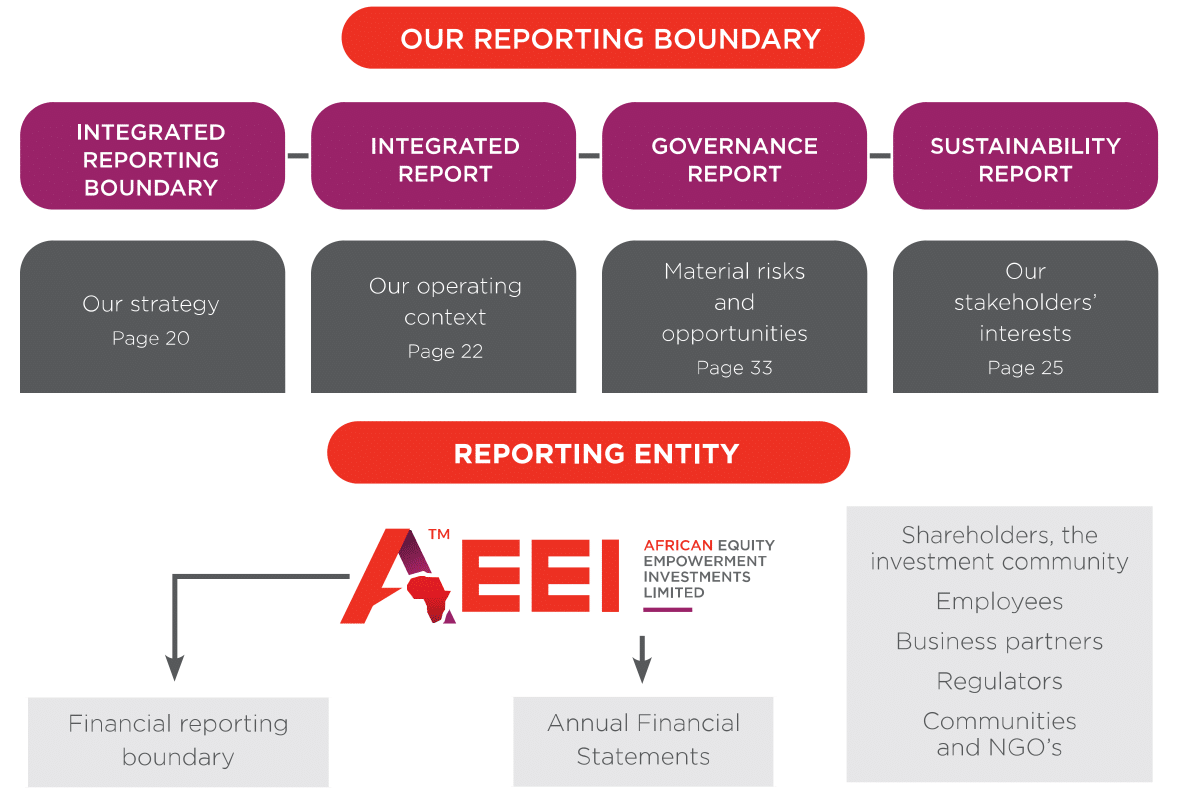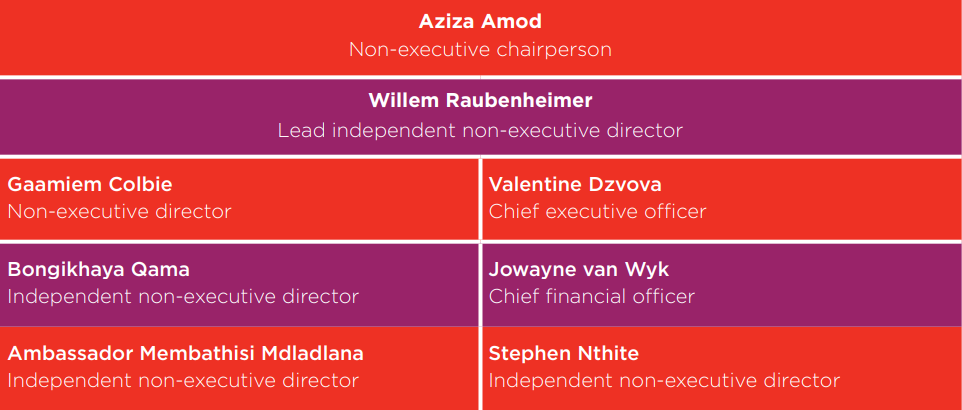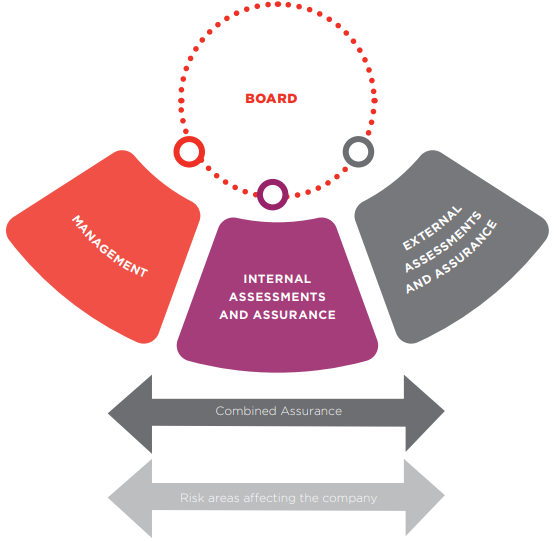ABOUT OUR INTEGRATED REPORT
Our integrated report is the primary report to our stakeholders. It is structured to show the relationship between the interdependent elements involved in our value creation.
Our integrated report is prepared by following the International <IR> Framework of the International Integrated Reporting Council (IIRC). It enables our providers of financial capital and all stakeholders to make an informed assessment of our ability to create sustainable value.
Our corporate governance section provides a brief overview of the Group, covering ethics, directors’ and executive profiles, key policies and committee reports. The entire corporate governance report is available on www.aeei.co.za/investor-relations/integrated-reports-and-online-suite-of-reports/.
We have provided a brief overview of our sustainability report, covering our approach to sustainability, human capital, social and relationship capital, corporate social investment and natural capital. For more information, refer to online Sustainability Report on www.aeei.co.za/investor-relations/integrated-reports-and-online-suite-of-reports/.
Our investment portfolio report covers the various divisions within the Group. For more information, refer to the online Investment Portfolio Report on www.aeei.co.za/investor-relations/integrated-reports-and-online-suite-of-reports/.
The Group’s annual financial statements provide a comprehensive report of the Group’s financial performance for the year. Refer to the chief financial officer’s report and the online Group’s annual financial statements on www.aeei.co.za/investor-relations/annual-financial-statements/.
Our notice of AGM and Proxy provides supporting information for shareholders to participate in the AGM and is available on www.aeei.co.za/investor-relations/notices/.
REPORTING SCOPE AND BOUNDARY
Our integrated report presents our strategic framework for creating value over the short, medium, and long-term in a way that gives stakeholders a holistic view of the African Equity Empowerment Investments Ltd (AEEI, the Company or the Group) Group and our future prospects. This report provides an overview, performance, and governance of the Company on delivering on our strategy over the past year. It reflects how we have created, preserved or eroded value over time. Our report provides information on our business model, material risks and opportunities, governance and operational performance for the financial year ended 31 August 2021. It also incorporates the financial reporting boundary of the Group and its subsidiaries. In addition, details of our investments in subsidiaries and strategic investments appear in our annual financial statements.
It also covers our response to the global COVID-19 pandemic, the resultant ongoing lockdown and the effects on the Company.
THE IMPACT OF COVID-19
Is there light at the end of the tunnel?
COVID-19 has become the greatest global shock in decades, and the world’s economy likely faces the worst recession since the 1930s.
South Africa, like many other countries across the globe, cannot escape the ongoing pandemic. The third wave of pandemic hit the country very hard and infection rates kept escalating with the Delta variant, with possibly a fourth wave in the near future. Like many other businesses, the resultant loss of employment and income will cause further damage to livelihoods, health, and sustainable development. While the country is set to emerge from the crisis weaker than it was going into, the pandemic has exposed long-standing structural weaknesses that have progressively worsened. Moreover, South Africa’s weak recovery is putting pressure on public finance and businesses.
Before the onset of the COVID-19 pandemic, the South African economy was already struggling. The reasons being the unstable electricity supply, business confidence, the diversion of departmental funds to bail out state-owned enterprises, low consumer and business confidence and lack of structural reforms.
The COVID-19 pandemic exposed South Africa’s biggest challenge to date – the job market with high levels of unemployment. The lower-income group suffered the most in job losses in comparison to higher-paid workers. Job recovery remains modest, with many businesses having to shut their doors permanently while others are still recovering from the stringent lockdown in March 2020 and the continuing varying restrictions instituted throughout the pandemic. However, there are some positive developments with an increase in start-up businesses and young entrepreneurs.
The outlook remains uncertain due to the many factors that influence the pandemic and associated restrictions will come to an end remain unknown. Such factors include subsequent waves of the pandemic in South Africa and abroad and the rate of vaccinations in the country and overseas. In addition, the virus continues to evolve with the many variants that are now spreading. Thus, it remains challenging to predict how the economic recovery will proceed and what setbacks will surface for as long as the pandemic continues.
Despite this, AEEI continued to manage the spread of the virus and business continuity by being proactive and responsible. Our COVID-19 committee and Compliance Officers monitor our actions and manage the risks in line with our Office Workplace Plan in terms of the Disaster Management Act, Regulation 16(6)(b). In addition, our executive team focuses on operational matters, including managing the business, its continuity plans, maintaining liquidity and managing risks.
At the start of COVID-19, we acted quickly to position our business to meet the challenges of the pandemic in uncharted territories. We worked closely with our stakeholders, worked on innovative ways to sustain our businesses, proactively supported our employees, service providers, suppliers while managing potential risks and challenges.




